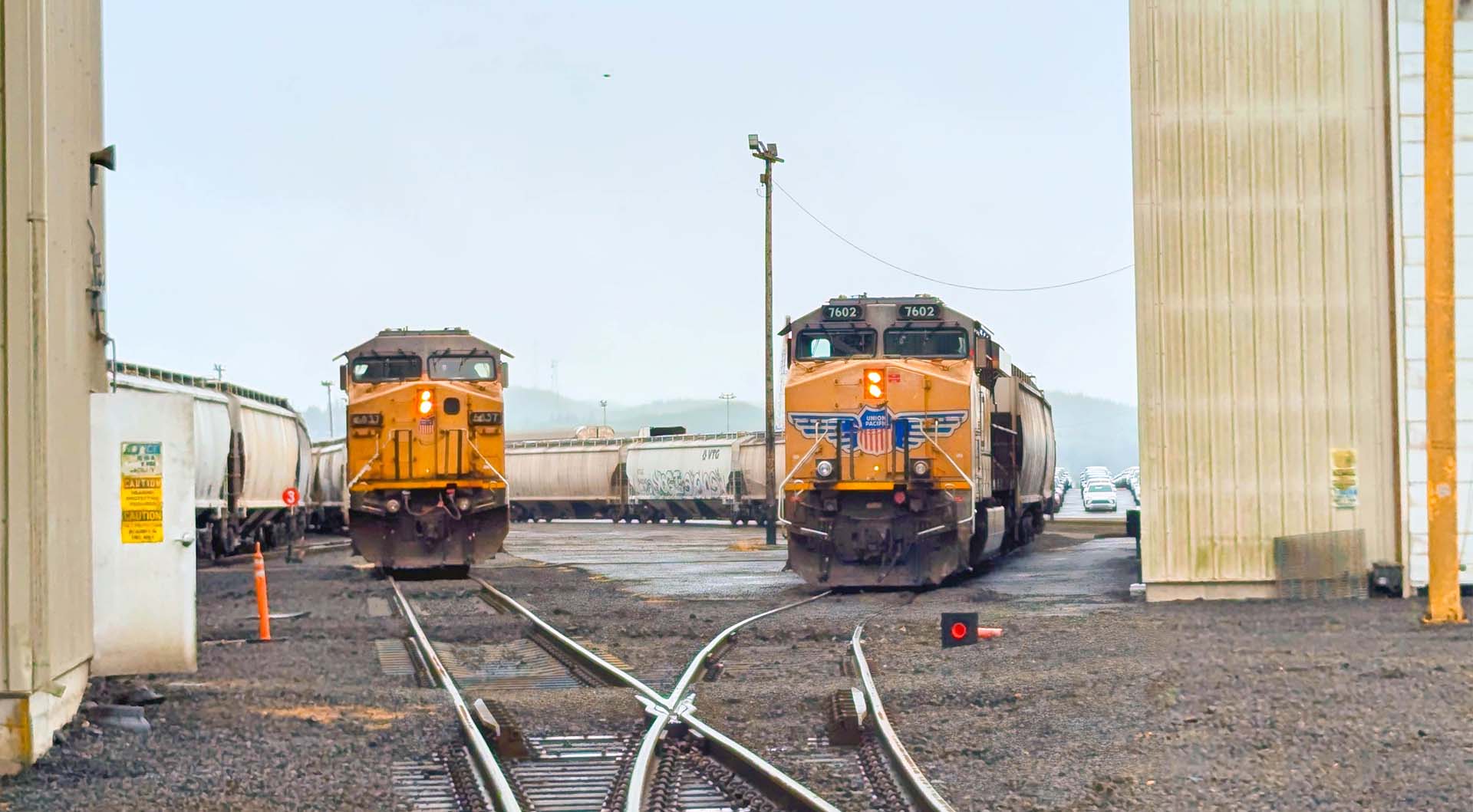
(Photo: Iowa Soybean Association / Bethany Baratta)
Rural Route 2: Thoughts from the train
October 1, 2024 | Bethany Baratta
“Keep your hands, feet, tail and paws in the train at all times,” we heard the conductor say.
My son and I laughed.
Riding the train around the perimeter of the Blank Park Zoo is a tradition for us. It’s reliable, fun and provides a unique perspective of the zoo, one you can’t easily see walking the 22-acre property.
As we rode the tracks past the alpacas, tigers and zebras, I couldn’t help but think about the logistics of soy transportation. It was fresh on my mind after returning recently from the Pacific Northwest. Nearly 30% of U.S. soybeans are exported from the region annually.
Putting various modes of transportation together to take soybeans from row to river takes an extraordinary amount of cooperation, collaboration and effort. Seeing it all come together at the Port of Grays Harbor, where soy is exported to customers around the world, was impressive. I’ve seen my dad load rail cars at the cooperative where he worked in northeast Iowa but didn’t think about where that grain might ‘land’.
I imagine seeing the port from a farmer’s perspective was a bit unique, too. From selecting the seed, planting, growing and harvest, there’s an immense amount of time (and prayer and money) spent on that soybean. And after it leaves the farm? It’s up to someone else.
That’s where the Soy Transportation Coalition (STC) comes in. STC is focused on all the ways soy is transported. It’s not just about rural highways and bridges, STC considers the impact that rail expansion projects and river dredging might have on farmers throughout the U.S. As STC Executive Director Mike Steenhoek says, “What happens over here impacts what happens over there. And what happens over there impacts what happens over here.”
The care you have for the soybeans you’re harvesting on your farm is the same care STC has regarding the transportation of those harvested soybeans and soybean products. The quality of the soybeans you produce doesn’t mean much if you can’t get it to the customers who have come to appreciate the U.S. soy supply.
As your harvested soybeans leave the farm this month, you can be assured that through the efforts of the STC and its farmer-leader board, it appears soy transportation efforts are on the right track.
Have a safe harvest.
Back